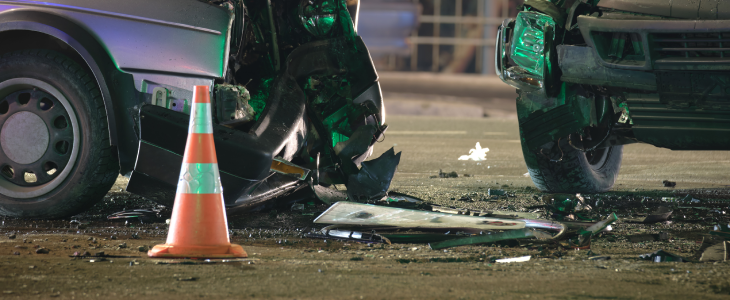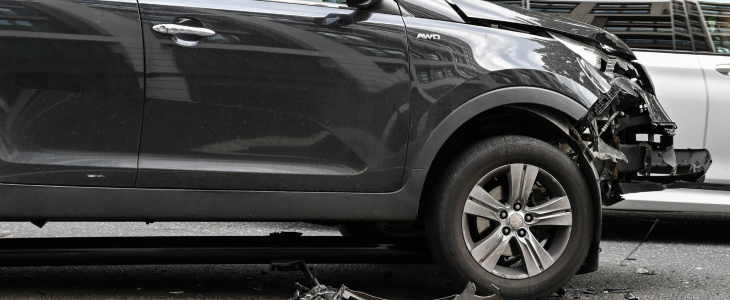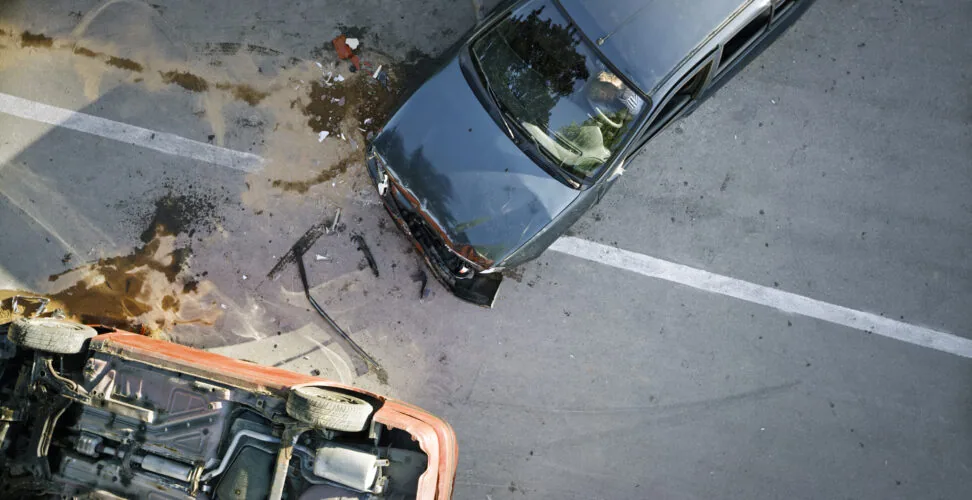What to Do Immediately After a Car Accident
Your safety comes first. If you’re able, move to a safe area and call 911. Law enforcement can document the scene, which strengthens your claim later.
Get medical attention – even if you feel okay. Some injuries take hours or days to show symptoms. Medical records create a timeline that ties your injuries to the crash.
Gather as much evidence as you can while still at the scene. Take photos, speak to witnesses, and exchange insurance details. Avoid admitting fault, even casually. As soon as possible, contact a car accident lawyer who can step in to protect your rights before mistakes or delays affect your claim.
Staying calm after a crash isn’t easy, but your actions in those first few minutes can shape the outcome of your claim. Always document what you see, even if you’re shaken. Photograph vehicle damage, traffic signals, road conditions, and any visible injuries. These images can become critical evidence when an insurance company tries to dispute fault.
Avoid saying anything that sounds like an apology, even out of politeness. Phrases like “I didn’t see you” or “I’m so sorry” can be used against you later as implied admissions of fault.
If you’re physically unable to collect evidence or speak with witnesses, ask someone you trust to do it for you. And don’t wait to call an attorney at McGowan & Cecil, LLC. Getting prompt legal advice can help you avoid common mistakes that could cost you compensation.
Understanding Maryland Car Insurance Laws
Maryland sets specific rules for how drivers file and resolve car accident claims. When you understand how the system works, you can stand up for your rights and respond with confidence.
At-Fault vs. No-Fault Systems Explained
Maryland follows a fault-based insurance system. That means the person who caused the crash is financially responsible for the resulting damages. You can pursue a claim through the at-fault driver’s insurance, but you’ll need to prove liability to recover compensation.
Unlike no-fault states, Maryland doesn’t automatically require your own insurance to cover injury costs. That’s why determining who caused the crash matters so much here.
Every driver in Maryland must carry liability insurance, but that doesn’t mean every policy fully covers accident damages. The minimum required coverage includes:
- $30,000 for bodily injury per person
- $60,000 for bodily injury per accident
- $15,000 for property damage
These numbers often fall short, especially in crashes involving multiple people or serious injuries. If the at-fault driver only has minimum coverage, you may need to turn to your own policy for help. That’s where uninsured/underinsured motorist (UM/UIM) coverage kicks in.
UM/UIM coverage protects you if the driver who caused the crash lacks insurance or doesn’t have enough to cover your losses. Maryland requires insurers to offer this coverage, though drivers can opt out in writing. If you’re unsure whether your policy includes it, ask your provider or have a lawyer review your coverage.
How Maryland’s Contributory Negligence Rule Affects Claims
Maryland uses a strict contributory negligence rule. You can be barred from recovering compensation if you’re found even 1 percent at fault for the crash.
Insurance companies often use this rule to avoid paying claims. They may try to shift the blame onto you to avoid liability. This makes it especially important to speak carefully when discussing the crash and to gather strong evidence early.
Your lawyer can help demonstrate that you followed traffic laws, responded appropriately, and acted responsibly. Witness statements, dash cam footage, and accident reconstruction can help reinforce your version of events.

Starting the Claims Process
To protect your right to compensation, you need to act quickly. Maryland law limits your time to file, and delays could hurt your case.
Filing a Claim with Your Insurance Provider
Even if the other driver caused the crash, you should notify your own insurer right away. Your policy may include coverage that helps with vehicle repairs or medical bills in the short term.
Most policies require you to notify your insurer “promptly” after a crash, often within 24 to 72 hours. If you don’t report the crash within that window, it can lead to delays or coverage denials. When you make the call, stick to the facts. Share the time and place of the accident, the other driver’s information, and any visible damage or injuries.
Provide only the basics, but avoid detailed statements until you’ve spoken with a lawyer. You want to avoid unintentionally saying something that could be used against you later.
Avoid guessing or speculating. If they ask whether you’re injured and you’re unsure, say you’re seeking medical evaluation. Don’t say you’re “fine” or “unhurt,” as those statements can limit your claim if symptoms develop later.
Keep a log of every communication with the insurer, including names, titles, and summaries of what was said. Insurance adjusters document everything – they expect you not to. When you keep records, you strengthen your position if issues arise later.
Dealing with the Other Driver’s Insurance Company
The at-fault driver’s insurer may reach out early. They may ask for a recorded statement or offer a quick settlement. Be cautious. Their goal is to minimize payouts, not protect your interests.
The other driver’s insurer doesn’t work for you, and they don’t owe you fairness. Adjusters may sound helpful, but their job is to reduce what the company pays. They may try to:
- Get you to accept a quick, low settlement before you know the full extent of your injuries
- Record your statement to use your words against you
- Delay communication to pressure you into settling out of frustration
You don’t have to speak with the other party’s insurer alone. An attorney can handle those conversations and help you avoid being pressured into accepting less than your case is worth.
If an adjuster contacts you, you can politely decline to answer questions and refer them to your lawyer. Once you have legal representation, you don’t have to deal with insurance companies directly – that becomes your attorney’s job.
Legal Steps for Recovering Compensation
Sometimes, a fair insurance settlement isn’t possible. When that happens, legal action may be necessary to recover the full value of your damages.
When and How to File a Lawsuit
Maryland law gives you three years from the date of the crash to file a personal injury lawsuit. That deadline draws a hard line – miss it, and you lose the chance to take legal action.
When you file a lawsuit, you do more than fill out a few forms. Your attorney builds a strategy, gathers evidence, consults experts, and challenges the other side from day one.
Lawsuits aren’t right for every case, but when insurance companies refuse to cooperate, they can be the best way to force accountability. Filing sends a clear message: you’re not backing down.
Types of Damages You May Be Entitled To
If someone else caused your accident, you may be entitled to recover:
- Medical Expenses – Emergency care, hospital stays, surgeries, and rehabilitation
- Lost Wages – Income you missed during recovery or due to long-term disability
- Pain and Suffering – Physical pain, emotional distress, and loss of enjoyment
- Property Damage – The cost to repair or replace your vehicle
Injury-related damages often go far beyond emergency room bills. You may need:
- Physical therapy
- Follow-up appointments
- Surgeries
- Medical devices
- Prescriptions
- Mental health counseling
Long-term or permanent injuries may lead to disability, requiring home modifications, mobility equipment, or in-home care. All of those expenses count toward your compensation.
Non-economic damages, such as pain and suffering, carry just as much weight. Chronic pain, anxiety, depression, or PTSD can change how you work, socialize, and sleep. If your injury interferes with your ability to enjoy life the way you once did, your claim should reflect that.

The Role of a Maryland Car Accident Attorney
A car accident attorney steps in to protect your rights from the start. They cut through red tape, push back against lowball offers, and keep your case moving forward.
Your attorney will:
- Investigate the crash
- Identify all liable parties
- Handle communication with insurers
- Negotiate a fair settlement
- Prepare your case for trial if needed
Maryland’s legal system favors thorough preparation and attention to detail. An experienced attorney knows what paperwork to file, what evidence to preserve, and how to counter insurance company tactics.
Resolving Your Case
Every case takes a different path. Some resolve quickly through settlement, while others require litigation. Here’s how the end stages typically unfold.
Negotiating a Settlement
Most claims settle before trial. Once your medical treatment is underway, your attorney will calculate your total damages and send a demand letter to the insurance company.
Negotiations may go back and forth. Your lawyer’s job is to push for the best outcome possible – and to advise you on whether a proposed amount truly covers your needs.
Settlements don’t happen overnight. Most insurers start low, hoping you’ll take the first offer out of desperation. However, this initial number rarely reflects your actual losses.
Your lawyer will calculate your full damages and demand a figure backed by evidence. If the insurance company pushes back, your attorney responds with documentation, expert opinions, and case law to support your claim.
These negotiations may take weeks or even months, but waiting can mean a better result. Once you settle, you usually waive the right to pursue additional compensation, so you want to get it right the first time.
What Happens If the Case Goes to Court
If the insurer refuses to offer a fair settlement, your case may go to trial. The litigation process unfolds in several phases – each one focused on building and presenting your case in front of a judge or jury. This includes pre-trial discovery, where both sides exchange evidence; depositions, where witnesses and parties give sworn testimony; and various legal motions that shape how the case will proceed in court.
Trials take longer than settlements and require more preparation, but they often create opportunities for a higher financial recovery, especially when insurers underestimate the strength of your claim. Your attorney will develop a compelling narrative backed by facts, expert testimony, and medical documentation. They’ll also prepare you for what to expect on the stand, in cross-examination, and during jury selection.
Even if your case is headed toward trial, the door to settlement stays open. Many cases resolve in the final days before the trial begins – sometimes even in the courtroom hallway. But when you have a lawyer who’s prepared to argue your case in court, insurers often take you more seriously, and that pressure can lead to better outcomes.

Contact McGowan & Cecil LLC
A car accident can throw every aspect of your life into a tailspin – your routine, your health, and your sense of stability. Medical bills pile up, vehicles sit in the shop, and insurance companies pressure you to settle quickly. You need more than quick answers; you need real support from a team that knows the ins and outs of this confusing process.
A Maryland car accident attorney at McGowan & Cecil, LLC, can step in and take that pressure off your shoulders. We’ve spent decades helping injured clients across the state fight for what they’re owed. When you’re ready to talk, we’re here to listen – and ready to act. Give us a call today to get started with a free consultation.
